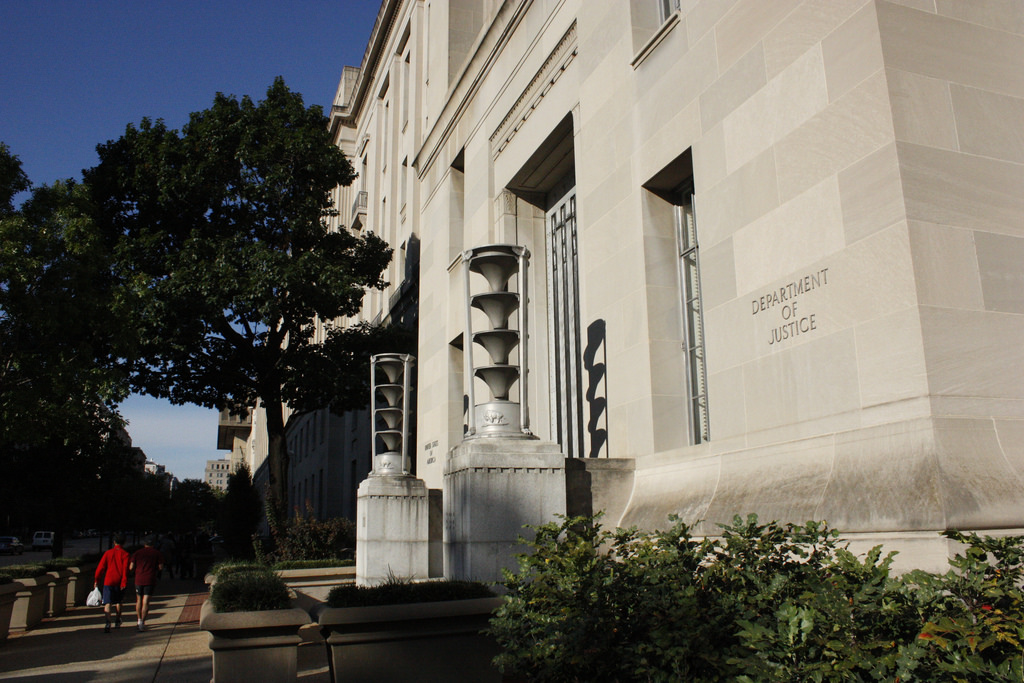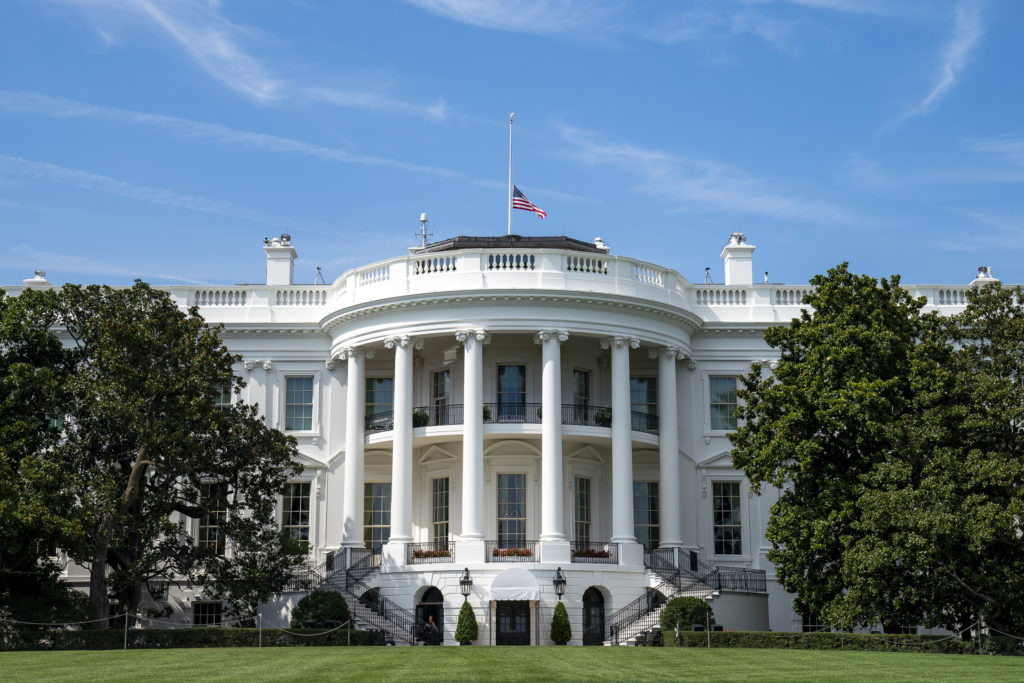The Situation: Bondi Aspires to Normalcy

Published by The Lawfare Institute
in Cooperation With

The Situation yesterday confronted a nominee who proudly turns his lack of qualifications for the job he seeks into a qualification of its own.
Today, the Senate Judiciary Committee confronted a very different sort of nominee.
If I were a senator, I would not vote to confirm Pam Bondi as attorney general.
Before the committee today, she could not bring herself to say clearly that the 2020 election wasn’t stolen, going only so far as to observe that Joe Biden is, in fact, president.
She could not bring herself to acknowledge the possibility of having to say no to Donald Trump or to address how she would handle the very-plausible prospect of receiving an illegal order from him.
She would not say that Jan. 6 rioters convicted of assaulting police officers should not receive pardons or that she would oppose such pardons if asked.
She pretended, as did Republican senators, that the problem of “weaponization” of the Justice Department and the FBI is a retrospective one about the outgoing administration of which incoming President Trump is the victim, rather than a prospective problem with respect to her soon-to-be boss.
She would not clearly separate herself from FBI nominee Kash Patel or acknowledge that his history, statements, and writings are antithetical to the proper function of the bureau—though she did repudiate the sentiments and sometimes suggested he didn’t harbor them.
She quite disgracefully linked the various prosecutions of Trump to the two assassination attempts against him.
And when asked about whether she was aware of “any factual basis to investigate” former Special Counsel Jack Smith, she declared, “Senator, what I’m hearing on the news is horrible. Do I know if he committed a crime? I have not looked at it.”
Whether these positions arise from conviction on Bondi’s part or from expediency, opposing them would be, for me, a matter of principle.
That said up front, Bondi is very different from yesterday’s nominee, Pete Hegseth. To be precise, there is something comfortably normal about her.
For one thing, she is clearly qualified for the position. Her background as a Florida state prosecutor and attorney general of the nation’s third-largest state are similar to those of some other attorneys general—particularly Janet Reno. Her opening statement talked about her policy priorities, rather than announcing that predecessors with formal qualifications for the job have brought us to a pretty pass and it’s time to turn the department over to a corrections officer in the Bureau of Prisons.
Bondi, in further contrast with Hegseth, also met with senators of both parties in the run-up to her hearing. She was aware of and conversant about their specific policy concerns, and refreshingly expressed a desire to work with them on areas of shared interest. She repeatedly seemed to be looking for such areas in a fashion that appeared, at least to me, to be sincere and which Democratic senators appeared to take seriously. (Bondi said at one point that the only committee Democrat she did not meet with was Sen. Mazie Hirono, who had refused to meet with her.)
This is, to her credit, how things should be. It is how the country gets things done even in the most divided of times.
Bondi also seemed animated by some fairly conventional law enforcement concerns. The border, of course, but also violent crime and fentanyl control. She talked about getting “back to basics—prosecuting violent crime and gang activity, stopping child predators and drug traffickers, protecting our nation from terrorists and other foreign threats, and addressing the overwhelming crisis at the Border. The Department of Justice must also return to defending the foundational rights of all Americans, including free speech, free exercise of religion, and the right to bear arms.”
This is pretty normy conservative stuff, and while she presumably meant the “back to basics” line as a dig at the prosecution of Trump and other more exotic activities of the current Justice Department leadership, she avoided promising any great adventurism of her own. She promised normalcy, and leaving aside that she battled an army of strawmen in doing so, the mere promise of normalcy from Trump administration officials—given everything he says and the cult of disruption that surrounds him—is a form of normalcy. She wasn’t talking about a “warrior ethos” like Hegseth, for example, and even as she stood by Patel, she was embarrassed by him and deflected questions about his agenda, rather than embracing that agenda.
Bondi is, to be clear, unpersuasive on the normalcy point. It doesn’t matter how much Republican senators project the corruption of the federal investigative and prosecutorial apparatus they are effectuating onto the other party. A Justice Department under Donald Trump with Kash Patel running the FBI cannot be normal, and it will not be normal, because Trump’s demands of the institution are so deeply abnormal.
That said, it does matter whether the attorney general aspires to normality. Because there will come a time—and it won’t take long—when Trump will demand something of the Justice Department that is frankly corrupt or that is unlawful or that is normatively improper. And it will matter in that moment where the attorney general’s and the FBI director’s limits are.
We learned in the first Trump administration just how important individual people’s limits within the executive branch really are. It mattered that Jeff Sessions, despite his shortcomings on many matters, followed career Justice Department officials’ advice that he had to recuse himself from the Russia investigation. And it is thus worth noting that Bondi said in response to a recusal question (related to her lobbying for Qatar) that she would consult with career ethics attorneys on recusal matters. It also mattered critically that Attorney General Bill Barr, despite his bad behavior in other areas, had real limits with respect to involving the Justice Department in Trump’s fight to overturn the 2020 election. And it mattered that his successors squashed one rogue official’s attempt to help Trump in that fight.
That Bondi aspires to normalcy is good. Could it be a smokescreen for an aggressive agenda of politicization of law enforcement? It could. Even more likely, it could be the sort of thing a nominee says because it’s the sort of thing a nominee says, and nobody—including Bondi—will know what her limits are, or if she has any, until The Situation tests her.
My gut tells me that Bondi is the sort of lawyer whom Main Justice’s culture of professionalism and good lawyering can and will coopt. It’s easy to be a MAGA lawyer who entertains legal nonsense when working for a campaign filled with true believers. It’s harder to be one when surrounded by first-rate professionals who tell you that the range of reasonable opinion runs from A to H, when the president is demanding that the Justice Department take a position somewhere closer to X or Y, and when you know that the courts will agree with the career professionals who work for you.
But as with so many of these things, the corruption of the institution is a dimmer switch, not a dip switch. And Bondi is clearly willing to go far to satisfy Trump.
As she will surely be confirmed, it is only a matter of time before the public finds out just how far she is willing to go.
The Situation continues tomorrow.





